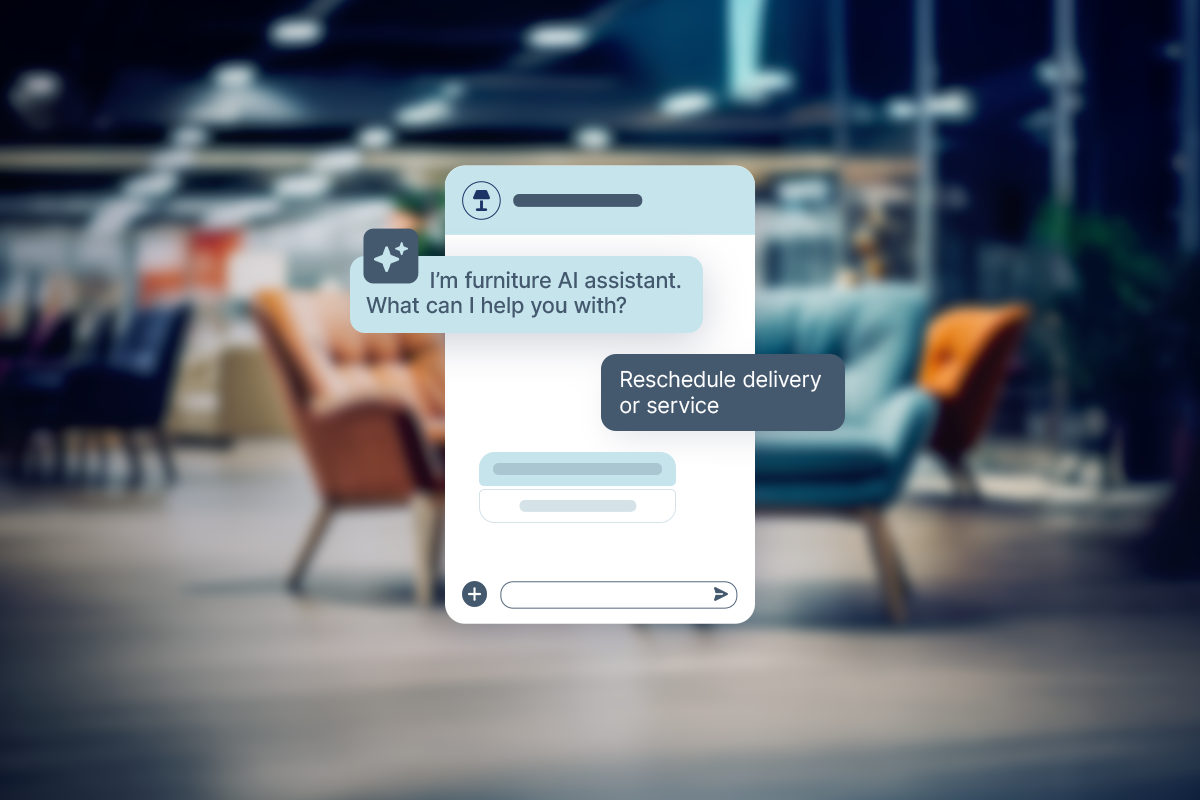Q: What motivated Brinks to look at messaging as a way to connect with customers?
A: More than 90% of all of our transactions were phone-based. Taking time to make a phone call was a rigid, inflexible pain point for our customers. We wanted to provide a channel that put the format back in the customer’s control.
Unlike phone calls, customers and agents are able to exchange and share attachments, links, gifs, and emojis making the interaction context-rich. These rich messaging interactions help agents understand the question faster and thus ensure customers quickly receive the help they need to resolve their inquiry and get on with their day.
ROI From the Start
Messaging has dramatically and positively impacted the contact center. The first thing to note was the fairly immediate shift of 10% of phone calls to messaging. There is also a significant difference in agent productivity. With phone calls, agents can only handle 1 at a time, but with text messaging, the agents handle from 4-6 unique conversations at a time. Even with an increase in the number of conversations each agent has, there has still been a 14 ppt.(avg.) uptick in CSAT. In fact, Brinks is watching the satisfaction rate with text messaging continue to climb, all while seeing staffing savings.
“In a short 5 months with Quiq, we converted 10% of phone calls to messaging, and we are on track to move 20% of our inbound calls to messaging.”
Mike Parish, Sr. Manager Customer Experience & Service Design, Brinks Home Security
Giving Control Back to Customers
Converting 10% of their inbound phone-based customer contact to a digital messaging experience in 5 short months, the company saw a noticeable difference in how customers and agents interact. Messaging allows customers to have conversations at their desired pace, while enjoying an experience that is as familiar as texting with family and friends.
Brinks proactively promotes and encourages their customers to engage with them via text messaging. Visitors to brinkshome.comare able to initiate a conversation with an agent through a “Text Us” link displayed prominently above the fold under “Contact Us”. Website visitors may also choose to engage by clicking the “Chat with us” icon on the lower right-hand side of the screen displayed on every page.

As with any new software implementation, Brinks had a number of assumptions going into their exploration of the messaging channel:
- Our customer base is older and will not utilize text
- Customers want to call or email us, not text
- Customers will want to text for this, but not for that
What Brinks discovered as a result of implementing Quiq Messaging was a reality that was a very pleasing contradiction to those beliefs.
Across their customer segments, text has continued to ramp, regardless of age-related demographics. In fact, the slowest month-over-month growth for the messaging channel has been a 135% increase, with the highest monthly increase at 329%. Not only has the messaging channel proven to be a preferred method of engagement, but agents handling the exact same contact types on the messaging channel as they did with phone with a higher average CSAT score.
Messaging Rollout Recommendations
Q: Based on your experience with messaging, what are some key takeaways you would share with CX leaders who are considering opening the messaging channel?
A: One of the biggest lessons learned from the messaging channel has been promoting the channel. It is important to leverage every engagement or touch point to help build awareness and grow a new channel.
That may mean promoting it via social media, outbound emails, newsletters, on the primary website, mobile website, and even in your IVR messaging. Just letting customers, who are calling in, know that they can hang up and text your brand directly will immediately shift calls to text messaging.
When promoting the messaging channel, Brinks also recommends that companies alter their campaign approach monthly, starting with awareness, next adoption, and finally growth. However, the most important thing to do is to avoid letting assumptions prevent success and to lean on your Voice Of Customer (VOC) data to drive you.
Focus on Continuous Improvements
In an effort to measure and continually improve on the digital experience, Brinks built out a short survey and implemented it by automatically sending a link at the close of each text message conversation. The survey questions emulate the main questions used to calculate customer satisfaction rates (CSAT) and Net Promoter Score (NPS). Issuing a satisfaction survey via text instantly yielded a 10% completion rate, which is a 60% increase over surveys delivered over traditional channels.
“Our messaging solution started out as an alternative to offload high call volumes and repetitive tasks, but now we have now expanded the implementation and smart routing throughout the entire enterprise.”
Mike Parish, Brinks Home Security
A smooth implementation of Quiq’s Messaging platform set the stage for the high adoption rate of messaging among agents and customers. Brinks has been pleased with how quickly their customers has embraced the messaging channel.
The company plans to continue promoting the channel so that at least 20% of their interactions are over messaging or web chat, as well as completing Quiq’s integration into Brinks’ IVR system and introducing automated SMS notifications for service updates. The company had originally planned to hit that 20% target in 12-18 months, but with the rapid acceptance and use of messaging by their customers, Brinks expects to hit that goal much sooner than expected.





